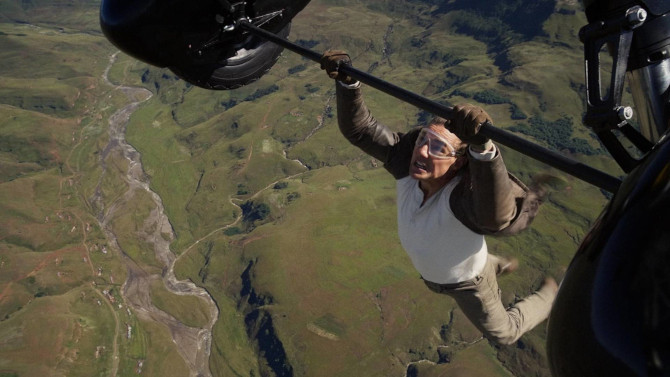
An Impossible Mission
How do you wrap up a franchise like Mission: Impossible? That is, if this even is the final installment... as they’ve made it sound (while at the same time, stars not named ‘Tom Cruise’ pipe up and suggest that might not be so). It has been twenty-nine years, with different writers and visionary directors – from twisty Brian De Palma and the action hair stylings of John Woo, to the lens flares of J.J. Abrams and animation expert Brad Bird, it was only about ten years ago that the franchise decided to opt for The Usual Suspects scribe Christopher McQuarrie for the final four. To return to that opening question once more, you could end with a Sopranos’ style cliffhanger, simply make another entertaining movie like the many before – like Everybody Loves Raymond did it with its final episode, or try to tie everything up in a neat little bow by bringing everything together as the Daniel Craig era did with James Bond. Well, it is definitely more along the lines of the latter example, with some distinct differences.
-
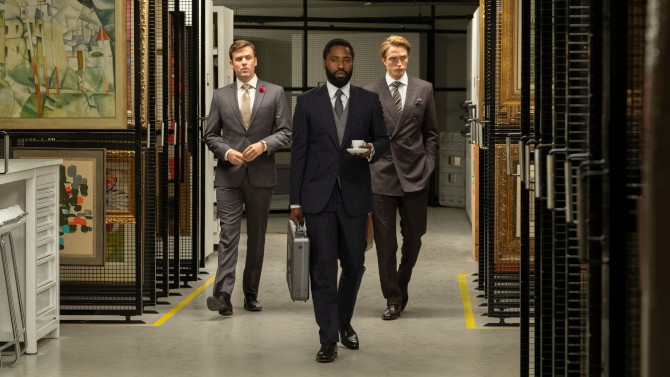
Turning Back Time
TenetAugust 30, 2020A title with so many connotations – of course, it speaks to the fascinating time tinkering found in Christopher Nolan’s new film Tenet, but it also refers to a pre-Covid time. . . a place where people nonchalantly made the trek to movie theatres where packed crowds would communally enjoy the newest blockbusters. Whether Tenet will be able to turn back time and safely fill cinemas during this new normal is yet to be seen. A mesmeric and visually stunning spectacle that finds Nolan playing within his favourite themes, Tenet is clearly self-indulgent, yet not to its own detriment. Following up works like Memento, The Prestige, Inception, Interstellar, and, to a lesser degree, Dunkirk, Tenet, for lack of a better description, is a sort of password. . . an entry by fire into a small group of people who are attempting to prevent World War III. It is a CIA agent simply known as The Protagonist (John David Washington – BlacKkKlansman), who is introduced into this precarious, mind-bending new world.
-
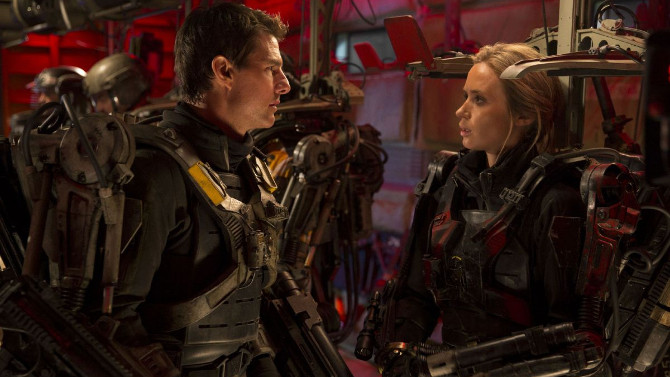
Live on the Edge
Edge of TomorrowMay 3, 2020What was once 2014's Edge of Tomorrow has somehow become known as Live Die Repeat. I’m still not exactly sure how this has happened (my guess is that it would be partly due to the fact it didn’t do very well upon its U.S. release), as you would think a title is a title. . . yet, with a simple catchy tagline (that, in essence, is a definition of the film’s narrative), it has overshadowed the original title – meaning that, by the time posters, DVD and Blu-Rays were released, the slogan featured more predominantly than the original title. . . it is rare hearing anyone even refer to it by Edge of Tomorrow anymore. A clever alien reworking of D-Day fused with a Groundhog Day premise, it brings two of Tom Cruise’s favourite people together to craft a perfect vehicle for the action superstar. Chistopher McQuarrie (who has worked with the actor seven times. . . and has three more projects in the works with him), who co-writes along with brothers Jez and John-Henry Butterworth (adapting the piece from Hiroshi Sakurazaka’s manga “All You Need Is Kill”), and director Doug Liman (who has made two recent movies with Cruise. . . and has another in the works), bring this sci-fi world to vivid life.
-
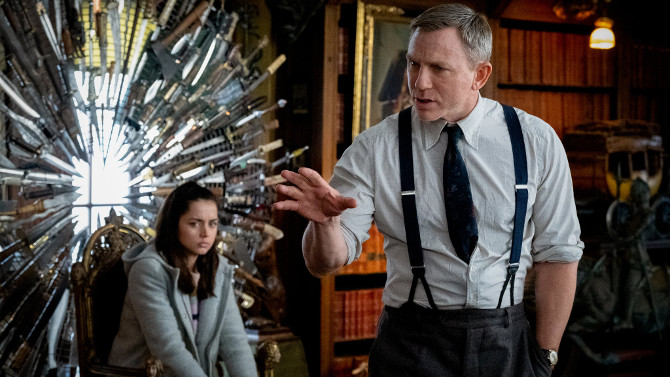
Blanc Check
Knives OutApril 6, 2020An Americanized twist on the Agatha Christie murder mystery, Rian Johnson writes and directs Knives Out (2019), an entertaining crime-centric dramedy that earned him an Academy Award nomination for Best Original Screenplay. Centred on the suicide (or is it murder – cue the dramatic music) of famed crime writer and patriarch Harlan Thrombey (Christopher Plummer), he was the centre (and benefactor) of his entire family. Though this is the genesis event, the main player is actually his kind-hearted and thoughtful caretaker/nurse, Marta Cabrera (Ana de Armas) – someone who is constantly reminded by Harlan’s relatives that she is a part of the family (despite them claiming she is from Ecuador, Cuba, Uruguay, Paraguay and Brazil – definitely part of the family). With a really weird disorder, she vomits anytime she attempts to lie – not good in a murder mystery.
-

Get Your Motor Running
Ford v FerrariFebruary 8, 2020Pairing up two of the most iconic actors of this generation. . . no, I am not talking about Leonardo DiCaprio and Brad Pitt. . . Matt Damon and Christian Bale work together for the first time in the 2019 Best Picture nominee Ford v Ferrari, directed by James Mangold (Logan; Walk the Line). An historical event that I’ve somehow never heard of before, this ‘based on a true story’ tale is set in 1966, and the times, they are a changing. A little over twenty years after the end of World War 2, a whole new generation was born when the soldiers returned home in 1945. . . these now teenagers/early 20 somethings (with more money than any other grouping that came before), are yearning for a new type of car (not their father’s automobile).
-
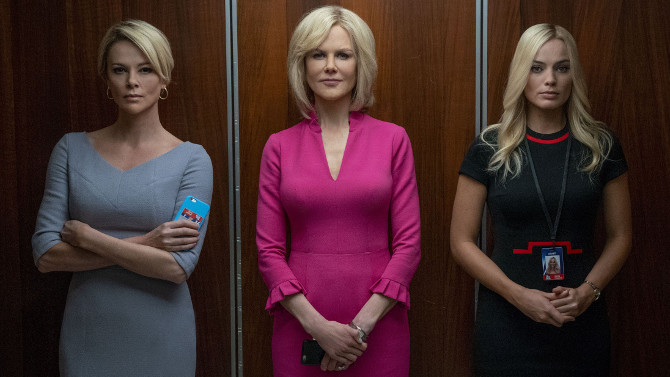
An Explosive Story
BombshellFebruary 4, 2020There are always a few films every year that seem to tap into the present zeitgeist (a window into prevailing spirit and mood of the time). . . one of 2019's is most definitely Bombshell, written by Charles Randolph (who won an Oscar for his Adapted Screenplay of The Big Short, along with Adam McKay), and directed by Jay Roach – who continues his seamless transition from comedy filmmaker to dramatic (this following his 2015 effort in Trumbo). Centred on three women working at Fox News in 2016, our quasi-narrator is Megyn Kelly (Charlize Theron in an Oscar nominated performance), who has just asked too liberal a question to Donald Trump at the 2016 Republican Debate (leading to backlash from its conservative viewership), newscaster Gretchen Carlson (Nicole Kidman), whose more liberal leaning slant has plateaued her career, and newbie Kayla Pospisil (Margot Robbie, also nominated for an Academy Award), who is trying to find an avenue that will get her on the air in some capacity. As you will probably recognize, Kelly and Carlson are real people, while the Pospisil character is an amalgam of many women (and not based on a specific real life person).
-
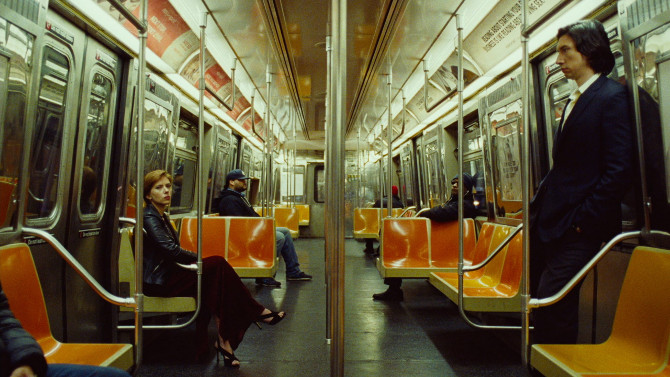
Go Your Own Way
Marriage StoryFebruary 2, 2020A guy walks into a bar; the bartender immediately recognizes that the patron is pissed off. Sliding the man a beer, he asks, “What’s ailing you?”, to which he replies, with a loud, booming voice, “ALL LAWYERS ARE ASSHOLES!!!”. There is only one other person in the establishment, someone sitting at the other end of the bar. . . his ears perking up, he immediately shouts, “I take offence to that.” Taken aback, the new patron asks, “Are you a lawyer?”, to which he concludes, “No, I’m an asshole”. All joking aside, lawyers, despite not being the main players in writer/director Noah Baumbach’s 2019 Academy Award Best Picture nominee Marriage Story, play an integral part in the piece. Following Charlie (Adam Driver) and Nicole (Scarlett Johansson), their so called marriage story is quickly becoming a separation and divorce story. Living in New York, Charlie is a renowned theatre company owner and playwright (by no means rich, but respected), his wife his actress muse. . . an edgy Hollywood teen actress that has transitioned to respected stage performer. With a young son, Henry (Azhy Robertson), their marriage has run its course. . . Nicole returning home to California (with their son) to film a pilot for a new series, Charlie must balance his hectic life, attempting to run his troupe while racking up frequent flyer miles to visit his son.
